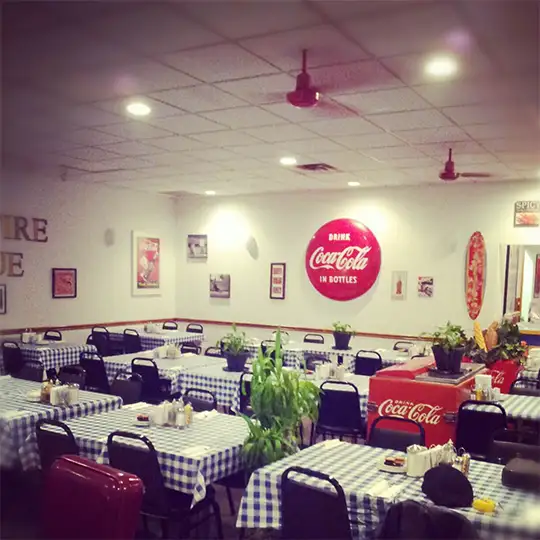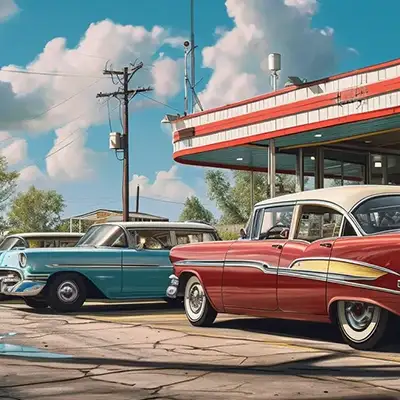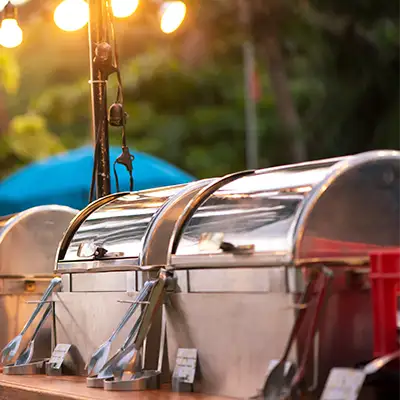WHAT IS TRADITIONAL BARBEQUE
The fact that I have even written this sentence is pure admission to being a Yankee, as was plainly obvious to those at Scott’s BBQ when Chef Lori and I arrived on our recent trip back to South Carolina. You see those of us in the North, of which I assume most of us who are reading this article are, just don’t really understand what traditional (read real) Barbeque is.
I’ve dedicated a majority of the last 18 years of my professional life to truly understand the art of cooking meat using wood smoke and extended periods of time at low heat. I have been consumed with getting it right, but it doesn’t “course through my veins”, it’s not directly part of my lineage and it is not part of my heritage either, or is it?. What drew me to learning and adapting a style of Barbeque from South Carolina was the heritage of those who developed it in the first place. Being of Scottish, Irish, English and Germanic origin, I found myself drawn into learning more and more about the Scottish and Germanic influences that shaped Carolina Barbeque.
I grew up associating the term barbeque to be synonymous with grilling; in reality, they are in no way close to being related other than cooking meat with heat. I realize that this is true for most Canadians, as for the most part people refer to our restaurant as Memphis Grill, which is hilarious to me, considering we don’t actually grill anything. We can’t, by the way; we don’t have a charbroiler to do so.
… people refer to our restaurant as Memphis Grill, which is hilarious to me, considering we don’t actually grill anything – because we don’t have a gas charbroiler…
So why does it matter? Why does it matter what we call it, as long as we enjoy it?
Part of me agrees with you, that it doesn’t matter, but then the preservationist part of me thinks it means everything. For over 500 years, people in the Carolinas have cooked Barbeque, and even though it may not be my lineage and heritage, it combines everything I believe in with respect to food.
You see, Traditional Barbeque was a way of survival, in the beginning, something that a community depended on was the ability to extend the shelf-life of pork. As history moves forward, smoking hogs was a way of feeding people en mass and was an event, a gathering, a celebration of food with family and friends. To a kid who grew up with food and family being intertwined with celebration and holidays, barbeque and its reasons seemed to fit into the food culture I was raised in.
So you see, I found a link between my heritage and family culture with that of the Carolinas, specifically South Carolina, and Traditional Barbeque. To a Carolinian, barbeque means one thing – Pork, hopefully from a whole hog cooked overnight in a pit fired by hardwood coals.
To them, barbeque is a noun, not a verb, to them, it means that one singular meat, served with one of the four marinades (read sauce) found in the state depending on where you are.I guess I’m lucky to be able to think about barbeque with a broader palette, as this last trip down has taught both Chef Lori and me that our style and diversity truly is Barbeque without Borders. To this Canadian kid, Barbeque means many things. It’s an obsession, a professional stand against the dumbing down of culinary standards in foodservice by preserving the last truly inconvenient cuisine, but most of all, Barbeque to me is a connection to a culinary history that isn’t directly mine, but I fell in love with some 18 years ago.
Chef Steven Popp 2017





